At hospital co-op, this Northeastern student is helping bridge the gap between neonatal care and research
Isabella Rando is completing a co-op the Center for Child Development and Lactation at Brigham and Women’s Hospital.
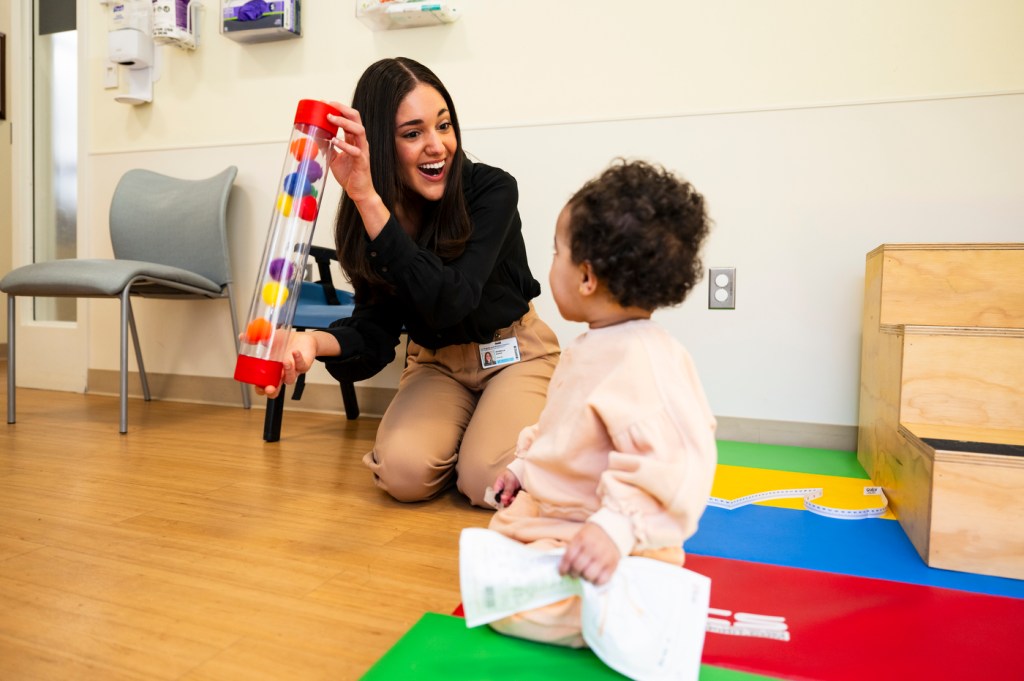
Witnessing a live birth can give someone a new perspective on life.
That’s certainly the case for Isabella Rando, a third-year behavioral neuroscience major who is completing a co-op at the Center for Child Development and Lactation at Brigham and Women’s Hospital, which treats babies born prematurely and with complex diseases.
Recently, Rando had one of the most transformative weeks of her life — witnessing five C-section procedures in a matter of two days.
“To be in the room when a human life takes its first breath, and to see the new parents be excited for the adventure, and these doctors saying ‘Welcome to the world!’ It was so life-changing,” she says. “I remember telling one of the residents, ‘I can’t imagine this could ever get old.’”
This is Rando’s second co-op at the Boston hospital. Last year, she was a medical assistant and worked at an outpatient clinic that treated adults. But she wanted to combine her experience working at the hospital with what she learned at the Center for Cognitive Brain Health at Northeastern University, where she focused on understanding how nutrition, exercise and fitness affect the brain development of young children.

So she went to work developing her second co-op at the hospital with a focus on pediatrics. That’s what led her to the Center for Child Development and Lactation, where she is now getting clinical experience as well as research experience.
Premature babies can have challenges feeding
On the research front, Rando is exploring two areas. First, she is analyzing the results of a survey by the hospital’s pediatrics department. The survey was given to the families of preterm infants that focused on understanding how frequently their newborns showed symptoms of problematic feeding.
“Some of these symptoms include seeming uncomfortable after feeding, getting exhausted during eating, holding their breath while eating, or breathing faster while eating. The survey also asks whether the baby is exclusively breastfeeding, exclusively bottle-feeding, or a combination of both,” Rando says.
Featured Posts
Rando’s job is to sift through the data to see the differences and frequency of issues that occur in the various ways a baby can be fed — breast, bottle or both.
“I am also looking to see what factors, such as gestational age (a measure of how long pregnancy lasts starting from the beginning of the women’s last menstrual period), are predictors or correlates of feeding issues,” she says.
Premature babies often have difficulty with feeding, Rando says, because they haven’t had time to develop “mature oral feeding skills.”
“This is because of issues that occur during one or many of the three phases of mature feeding: issues during the oral phase (involved in sucking) would result in issues like biting and chewing during feeding, whereas issues during the pharyngeal or esophageal phases (involved in swallowing) would result in issues like choking or reflux,” she says.
These issues can have a long-term impact on a child’s development, Rando stresses.
Rando is also helping conduct research on understanding the impact transition-to-home programs have on infants’ weight gain and hospital admission rates.
“Transition-to-home programs, like the one offered at Brigham and Women’s Hospital, are designed to help families and their infants after they leave the NICU by providing support, education, and care coordination to ensure a smooth and seamless transition,” Rando says. “The hope is that these Transition to Home programs reduce rehospitalizations and improve the rate of weight gain so that these babies can grow and develop on par with healthy, full-term infants.”
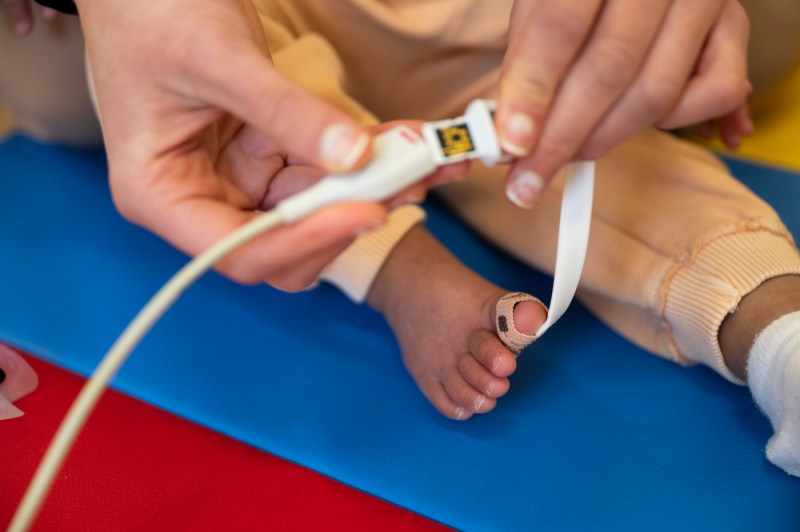
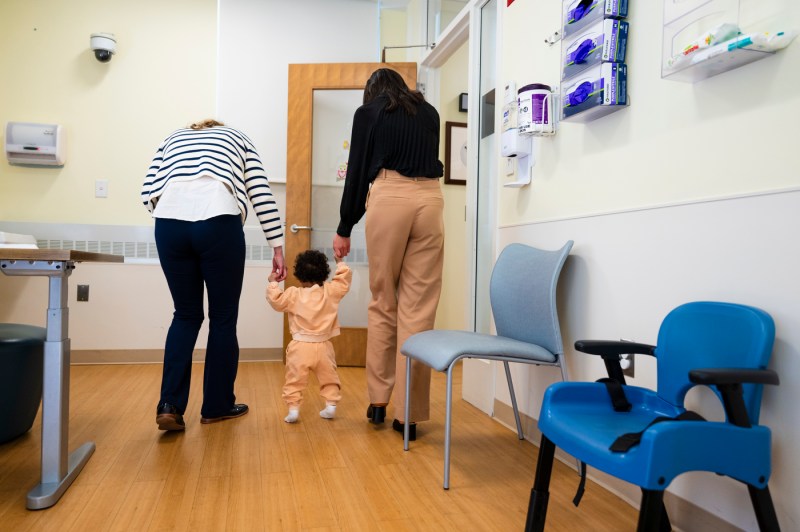
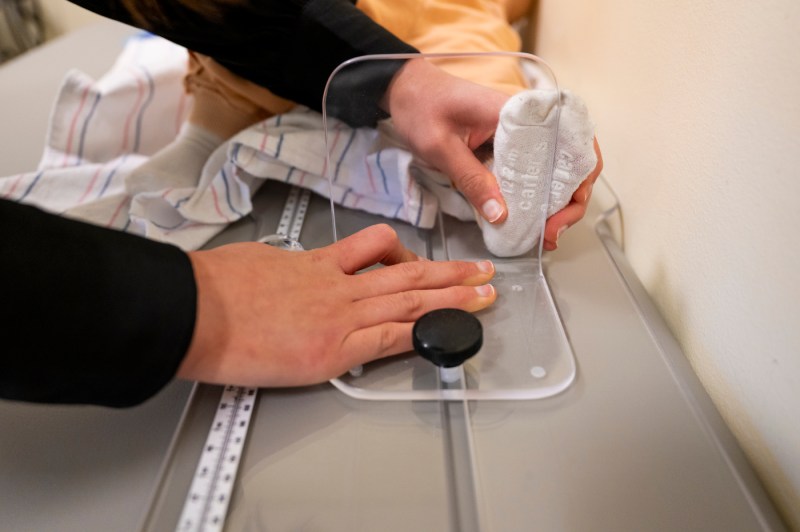
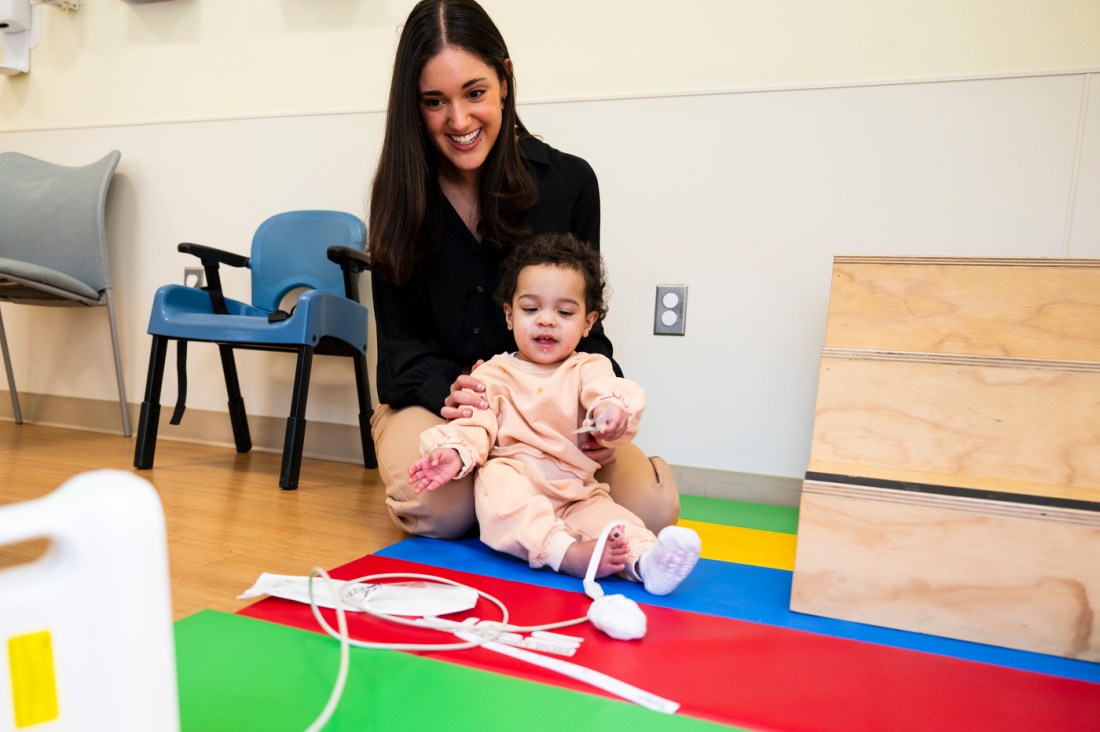
Gap between clinic and research
Rando is in the clinic Mondays through Thursdays from 8:30 a.m. to 5 p.m.
She spent the first few weeks, shadowing clinicians and medical professionals, getting the hang of the operations of the clinic.
“I had never really worked in such a multidisciplinary setting where there’s speech and language pathologists. Those are our feeding therapists. There’s occupational therapists and physical therapists. There’s neonatologists. There’s nutritionists.”
“Any combination of those providers could be seeing one baby at one visit,” she adds.
Now that she’s a few months in, she is helping set up follow-up appointments and ensuring patients involved in research studies are regularly checked on.
“One of my roles is to help bridge the gap between what’s happening in the clinic and what’s happening on the research side of things,” she says. “I will go in and identify any of our patients who are enrolled in research studies, so that we can make sure that everything is taken care of when they come in. They’re getting their clinic visit and seeing the neonatologist, but also any research follow-ups that need to occur are happening at the same time.”
In addition to playing a role in helping bring a new life into the world, Rando says she’s been greatly encouraged by the clinicians who work with her. The experience has only solidified that she is on the right path.
“Being surrounded by such intelligent and inspiring women every day in this field is so exciting to me because it shows that I’m doing everything in my power to be in their shoes one day,” she says, “I’m going to embrace every step along that journey.”










